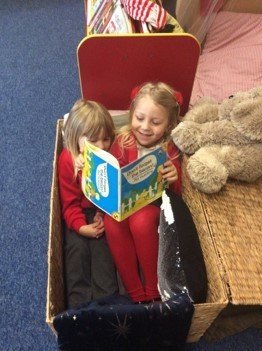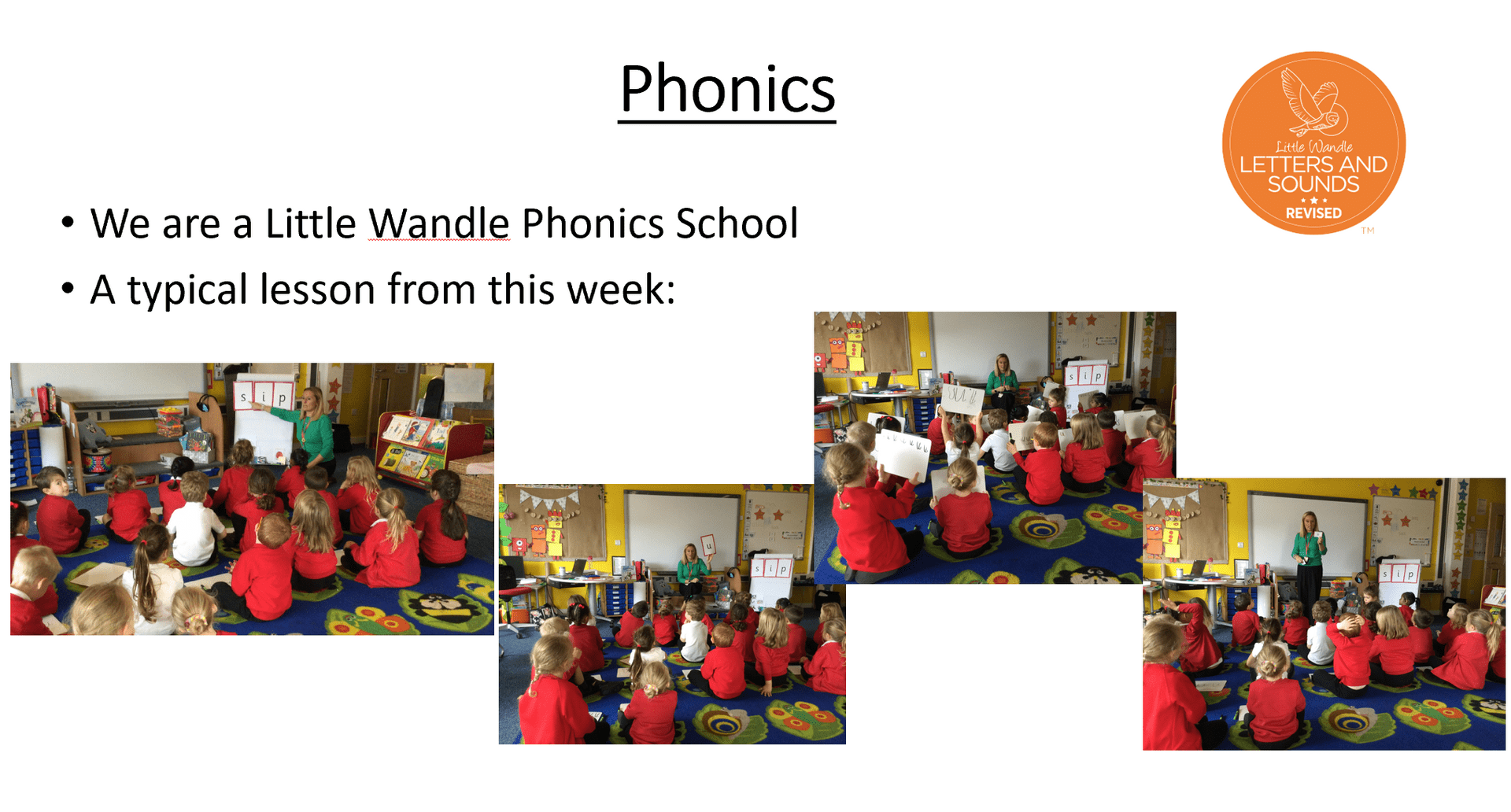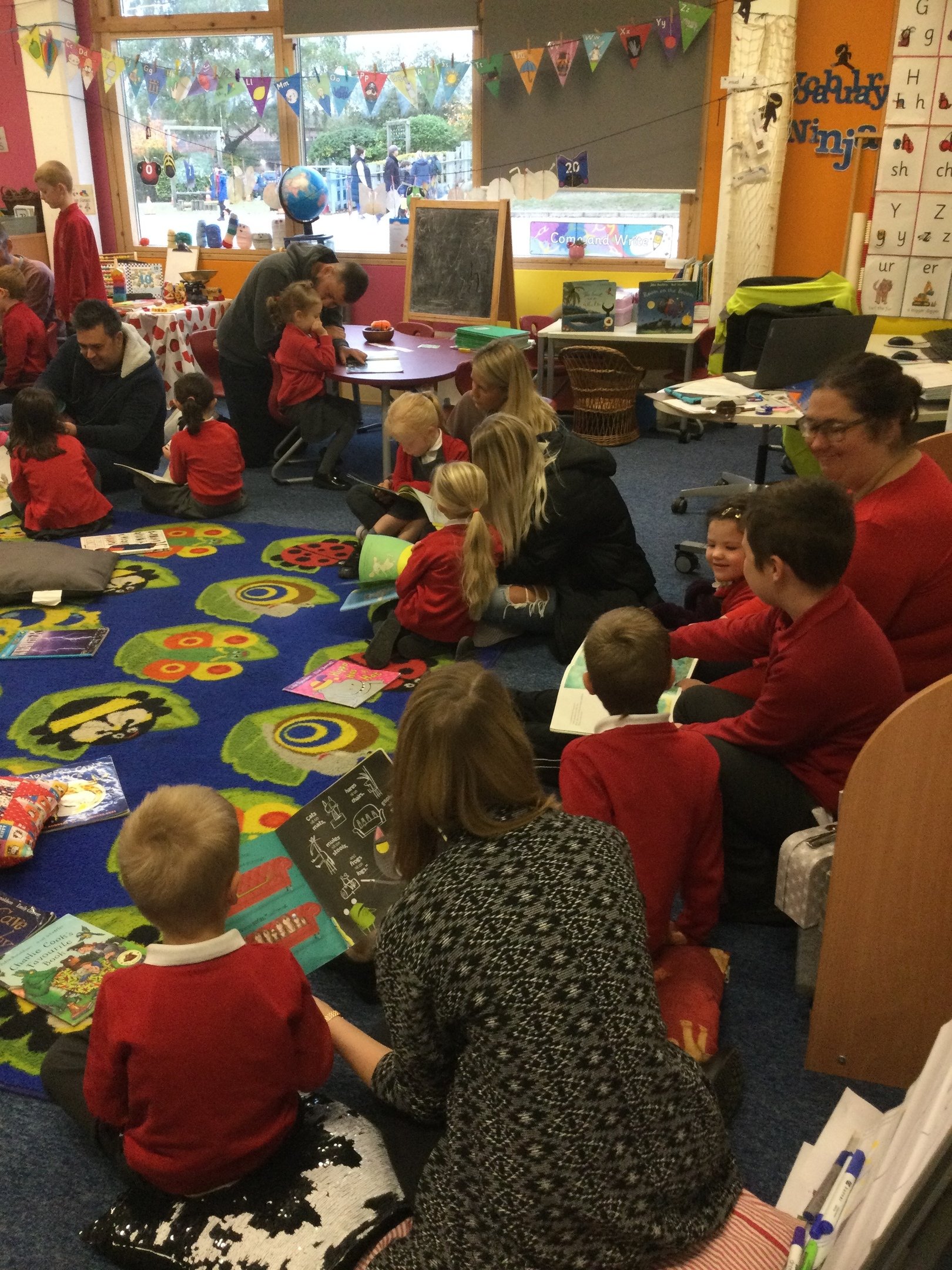
St Mary's C of E Primary School & Nursery
Faith in Everyone to Shine Brightly
READING & PHONICS AT ST MARY'S
English Leads: Helen Fudge & Dianne Allsworth
‘Faith in Everyone to Shine Brightly’
Little Wandle Letters and Sounds (revised) is our chosen
systematic synthetics phonics programme.

Why reading matters
Reading is one of the most important skills a child will ever learn and at St. Mary’s reading is woven throughout every element of the curriculum. We encourage all children to read regularly both in school and at home.
Please ensure that when you read with your child you add this to their BoomReader account. Any comments you make provide the teachers with valuable information about your child and their reading habits and vice versa.
‘Children do not just ‘become’ readers, however, and reading engagement is not
possible if children struggle with the basic mechanics of reading. Fluency and enjoyment
are the result of careful teaching and frequent practice.’
(The Reading Framework, DfE July 2021)
At St. Mary’s, we believe that both good, quality first teaching and strong links with home will enable children to become successful readers and therefore have better chances later in life.
Reading Vipers & Vibrant Vocabulary Newsletters
The St Mary’s newsletters for parents and carers of little vocabulary adventurers and reading bookworms!
“There’s a power in words.
There’s a power in being able to explain and describe
and articulate what you know and feel
and believe about the world,
and about yourself.”
(Tracy Chapman, musician and song-writer)
Our Reading Vipers and Vibrant Vocabulary newsletters will support you on this quest to help give your children the best chance in life through having the very best vocabulary and reading skills at their disposal! You can see all the latest issues on our Newsletters Page here.
Starting to read
When children begin school in Reception, the first books they take home will be ‘wordless’ books. This happens in week 2. To become a fluent and skilled reader, children need to be able to talk and be well practised in being spoken to. With a wordless book, a child can use the vocabulary bank that they have built up to talk about the pictures and in time, make up their own story line to accompany the illustrations.
Reading for pleasure
Reading for pleasure is vital in developing a life-long love of reading. This involves children becoming engaged with reading. At St. Mary’s, every child has two reading books: One book is pitched at an appropriate level for them to be able to fluently read 95% independently. The other is often derived from our curated list of '50 Best Books', kept in every classroom, or from our well-stocked library.
Each academic year has a list of 50 quality books for the children to read or have read to them. These include a variety of fiction, non-fiction and poetry. A link to each year groups 50 best books can be found here. This list is regularly updated (by Books for Topics). Every classroom has the books and book covers on display in their classrooms and the children have the opportunity to recommend books to their friends and write reviews for books they have read.


Language Comprehension
Language comprehension refers to the way in which we make sense of words, sentences and the wider language we hear or read. At St. Mary’s, we have specific 'Vocabulary Ninja' sessions each week where the children are specifically taught new words and have the opportunity to explore the morphology of the words. This enables them to understand more of what they are reading and to extend their spoken and written vocabulary.
It is also developed by talking to and with children. At St. Mary’s, the youngest children in the school have timetabled opportunities to develop these skills through ‘show and tell’ sessions and through the use of 'Helicopter Stories'. All children are encouraged to join in and to ask thoughtful questions of their peers. These conversation points are developed further throughout the school and every year group has a planned debate each term to really focus on these language comprehension skills. Children are often paired up to ensure that every child has opportunities throughout the day to speak and be listened to so they can be involved in a two-way, back-and-forth conversation. We use the Wiltshire Language Stems progression throughout the school.
Language comprehension is also taught through whole class reading. During whole class reading we use VIPERS to ensure every area of reading is covered. Each week we focus on a different skill from the VIPERS list and we use Literacy Shed Plus to resource this area of learning.
Decoding
Decoding refers to reading unfamiliar words by sounding out and then blending and then reading familiar words accurately and silently at a glance. We develop this through our phonics teaching using Little Wandle Letters and Sounds Revised. As early as week 3 or 4, as soon as the children have enough sounds and are able to orally blend they are given the opportunity to begin reading a book with phonetically decodable words in.
Phonics
Phonics is taught daily at St. Mary’s in EYFS and Year 1 using Little Wandle (a complete systematic synthetic phonics programme). This replaced our previous scheme, Floppy's Phonics.
The children take home a phonetically decodable book that they are able to read 95% of fluently. The first time they read the book they will be decoding it, the second time they read it should be to help develop fluency and the third time is to read for comprehension to check that they have understood what they have read. Word reading and language comprehension require different types of teaching. We teach word reading through our phonics lessons and individual reading time with the children each week. In EYFS, Y1 and Y2, group reading sessions take place to discreetly teach the skills of reading expressively and fluently as this is essential for comprehension. Year 2 recap Year 1 Summer Term phonics in Terms 1 & 2 and then move onto the Spelling Shed spelling scheme in line with years 3-6.
Story times
These are our favourite part of the day. With many of our children arriving and leaving school on the bus before the end of the school day, each teacher timetables in a special time within the school day to just read to the children. This reinforces the reading for pleasure aspect and gives all children a chance each day to be read to and to let their imagination run free. These are crucial times for enhancing children’s enjoyment of literature, increasing their vocabulary and continuing to develop their language comprehension.
As part of our parent open afternoons we issued parents with a 'helping your child to read' booklet. To view this booklet please click here.
Especially since the pandemic, we love to invite families into school to promote reading. For example, EYFS and Year 1 children have attended a Reading Café with their parents or grandparents where the children enjoyed sharing a picture book with their family. We all joined in with a shared story 'We're going on a bear hunt'.
In October we hold our new to St. Mary's 'Thrive at School' meeting. This is very well attended. We share these slides to help parents & carers learn more about how we teach early reading at school and how they can help at home.
In October 2022 we invited all parents into school to spend the first part of the day reading with their children.
We look forward to welcoming many more parents and carers into school to support reading during the first week of March to celebrate World Book Day 2023.
_____________________________________________________________________
Governor Voice
}As the Governor responsible for monitoring the development and improvement of English, which includes reading and writing, I have visited all KS1 classrooms this year to see phonics teaching and whole class reading sessions in practise. I have also met with the subject lead in person and via zoom to discuss the subject improvement plans for both Reading and Writing, carried out a joint book look, reviewed targets and discussed strategies for improving the editing of work. I particularly enjoyed observing the enthusiasm and energy of both staff and pupils for the subject. . ~ Julia Knowles, English Link Governor
_____________________________________________________________________
Curriculum Pages
















